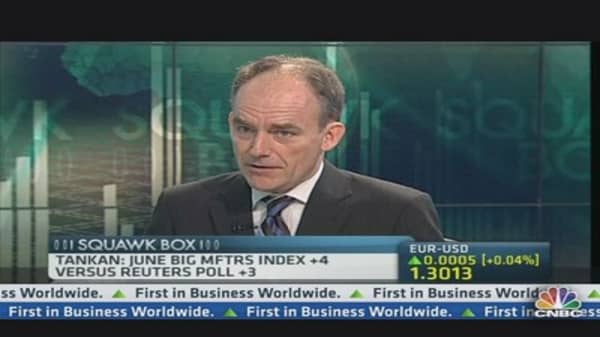Japanese bank lending marked its biggest annual increase in four years in June, suggesting the central bank's aggressive monetary stimulus and brightening economic prospects are spurring fund demand for fresh investment.
Outstanding loans held by Japanese banks rose 1.9 percent in June from a year earlier, Bank of Japan data showed on Monday, marking the 20th straight month of increase and posting the biggest gain since July 2009.
(Read More: Kuroda Claims Success for Bank of Japan's Stimulus)
"The recent increase in demand for funds is related to mortgage lending and the housing market," said Shuji Tonouchi, senior fixed income strategist at Mitsubishi UFJ Morgan Stanley Securities.
"I expect bank lending to continue to steadily increase, which is part of the portfolio rebalancing that the BOJ is trying to encourage."
Borrowing for investment in real-estate trust funds, and overseas mergers and acquisitions, also contributed to the increase, which followed a 1.8 percent rise in May, a BOJ official told a briefing.




